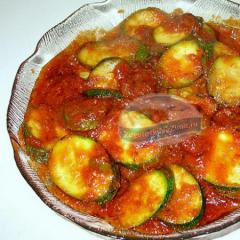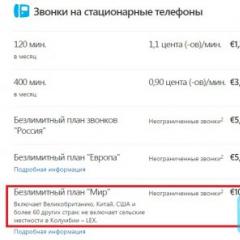September 16 is a holiday in Belarus. Public holidays of Belarus
Public Holiday - it is a holiday established in the Republic of Belarus in commemoration of an event of particular historical or socio-political significance for the Republic of Belarus, which had a significant impact on the development of the Belarusian state and society.
State holidays in Belarus are established according to the Decree of the President of the Republic of Belarus of March 26, 1998 No. 157 “On State Holidays, Public Holidays and Memorable Dates in the Republic of Belarus”.
Public holidays celebrated in the Republic of Belarus:
| Constitution Day of the Republic of Belarus | March 15th |
| Unity Day of the Peoples of Belarus and Russia | April 2 |
| Victory Day | May 9 |
| Day of the State Emblem of the Republic of Belarus and National flag of the Republic of Belarus | second sunday of may |
| Independence Day of the Republic of Belarus (Republic Day) | 3 July |
Holidays:
nationwide
| New Year | 1st of January |
| Day of Fatherland Defenders and the Armed Forces of the Republic of Belarus | February 23 |
| Women's Day | March 8 |
| Labor Day | 1st of May |
| October Revolution Day | November 7 |
religious
| January 7th | |
| Easter | according to the calendar of the Orthodox and Catholic denominations |
| Radunitsa | |
| Day of Remembrance | November 2 |
| December 25 |
Declared non-working days:
| 1st of January | New Year |
| January 7th | Christmas (Orthodox Christmas) |
| March 8 | Women's Day |
| according to the calendar of the Orthodox denomination | Radunitsa |
| 1st of May | Labor Day |
| May 9 | Victory Day |
| November 7 | October Revolution Day |
| December 25 | Christmas (Catholic) |
The decision to establish public holidays and holidays, granting the corresponding event the status of a public holiday is made by the President of the Republic of Belarus.
The draft of such a decision is submitted in the general manner established for the submission to the President of the Republic of Belarus for consideration of draft acts of the President of the Republic of Belarus. The project is accompanied by a reasoned rationale for its adoption. On public holidays and national holidays in accordance with the law rises.
Official celebrations, military parades, artillery salutes and fireworks are held on the occasion of public holidays and public holidays in accordance with legislation.
Days dedicated to outstanding events, traditional dates, honoring workers in a particular profession, industry or field of activity, etc., are holidays, if this is established by the President of the Republic of Belarus.
Dates that do not have signs of public holidays or holidays, but are associated with certain historical events in the life of the state and society or traditionally celebrated by certain categories of citizens, are memorable dates.
In the Republic of Belarus can be celebrated holidays, established by acts of international organizations, other international legal documents.
National holidays of Belarus certainly differ from holidays in Russia. And since we have moved to permanent residence in Belarus, they need to know and remember. In order not to miss the concerts and events held here, not to forget to congratulate family and friends, not to go to the bank or to the post office, for example, on a non-working day))) And it's just time to get used ... because Belarus has become our second home, and in Russia we are now just working (or not working on weekends under Russian law days).
State holidays of Belarus, other holidays and memorable days celebrated in the country
Constitution day
On March 15, 1994, the Constitution of the independent Republic of Belarus was adopted.
Unity Day of the Peoples of Belarus and Russia
The main holiday of the Union State of Belarus and Russia is celebrated on April 2. It was on this day in 1996 that the Presidents of Russia and Belarus, Boris Yeltsin and Alexander Lukashenko, signed the Treaty on the Community of Belarus and Russia in Moscow. A year later, on April 2, 1997, the Treaty on the Union of Belarus and Russia was signed, which formed the basis for the integration processes of the two states.
Day of the National Flag of the Republic of Belarus and the State Emblem of the Republic of Belarus
The 2nd Sunday of May is the Day of the National Flag of the Republic of Belarus and the National Emblem of the Republic of Belarus.
The holiday is dedicated to the main symbols of the country, which embody the ideas of national unity and are the most important attributes of the sovereignty and independence of Belarus.
Victory Day
On May 9, Belarus celebrates the victory over fascism in the Great Patriotic War (World War II). In the country, this is one of the most revered dates, as the victory went at a huge price - every third Belarusian died.
War veterans in Belarus enjoy a special honor, so the solemn processions of veterans are the main festive event of Victory Day. They pass across the country.
Independence Day
In Belarus, Independence Day is the main national holiday. It is celebrated on July 3 - the day of the liberation of the city of Minsk in 1944 from the Nazi invaders.
The main event of the holiday is a solemn parade. In Minsk, it is held on Pobediteley Avenue and reminds that the Belarusian people won the freedom of the country at the cost of unthinkable losses, and also demonstrates the achievements of sovereign Belarus.
Holidays and memorable days in Belarus
February 23 - Day of Fatherland Defenders and the Armed Forces of the Republic of Belarus. Although the main characters of this day are servicemen, in Belarus it is considered a holiday of all men.
March 8 - Women's Day. The holiday was established shortly after the 1917 revolution. In modern Belarus, March 8 is the Spring holiday and the day when women are honored.
May 1 - Labor Day. Labor Day is one of the most popular holidays in Belarus. On this day, there are many concerts and other entertainment events. Many celebrate it, arranging picnics.
Memorable days
Belarus has officially established memorable days in which it is customary to remember the victims of great tragedies, to pay tribute to the dead.
Memorial Day of the Dead (Radunitsa) - the 9th day after Orthodox Easter. On this day, it is customary to visit cemeteries, to put in order the graves of relatives and close people.
Folk holidays
Along with the official in Belarus, ancient folk holidays remain popular, one of which is Kupalye. It is celebrated on the night of July 6-7. The celebration is accompanied by folk rites, songs, round dances. Mandatory attributes of the holiday - ritual jumping over the fire and swimming.
Need to remember! What non-working days (holidays) in Belarus, only 9 pieces!
About this in a separate note
The Belarusian people have kept such holidays as Kolyady, Kupalye, Maslenitsa, Dozhinki. In each of them are visible elements of ancient religions.
The traditions of the Belarusian people are rooted in the past. Here the paganism of the ancient ancestors is closely intertwined with the Christian belief. It is clearly represented in interesting traditions and holidays.
Dozhinki holiday
The culture and traditions of the Belarusian people are a reflection of the everyday life of ordinary people. The culture of Belarusians is strongly connected with the land. One of such manifestations is the Dozhinki holiday. It is held at the end of sowing. Belarus is quite fertile areas rich in harvest. This ancient custom is known to all nations that are associated with agriculture. The holiday turned out to be so popular that no wars could kill him. The people kept it for many centuries. In Russia, this beautiful tradition is reflected in the annual. It selects the best workers and gives them gifts.
Holiday Kupale

It is believed that unusual things happen: the animals begin to talk, the trees come to life, and in the rivers and lakes you can watch the mermaids swim. The day is filled with many legends. And no one can figure out what is true and what is false. It is held from the sixth to the seventh of July. This holiday is the most ancient of customs. He has pagan roots.
Our great-grandfathers associated Kupala with sun worship. "Kupalo" - means a hot, bright creature, boiling with anger. In ancient times, the people thanked the fire, water, land on the Kupala night. According to custom, young people jumped over the fire. So was the rite of purification. Paganism and Christianity after the adoption of the Christian faith became closely related. It was believed that John the Baptist was born. And the word “bathed” comes from the word “bathe,” since baptism was carried out in water. There is a legend that it was on this night that everything that seemed in a dream became a reality. The souls of the dead came to life in the form of mermaids bathing in the river. They could be seen in clear water.
One of the rites in the Kupala night was the search for a fern. It was he who according to custom had the key to everything that was happening. The owner of this flower understood the speech of animals and birds, looked at the mermaids and watched the trees move from place to place. This plant is not the only flower worshiped by our great-grandfathers. At that time it was believed that all flowers are endowed with incredible healing power. Women and children collected various herbs, covered them in the church and treated them for a whole year. On this holiday, another ceremony was held - water purification. If you swim in this night, then you will feel clean all year, so said a superstition. In the morning after the holiday, everyone rode through the dew. The people believed that the dew would give everyone good health and strength. Midsummer festival was celebrated throughout the village, sleeping on this night was not allowed.
Carols

This holiday among Belarusians was the most beautiful among winter ones. At first it was held from December 25 to January 6. With the adoption of Christianity, this holiday was transferred to the birthday of Christ. Christmas time lasted from January 6 to January 19. According to the pagan belief, “kolyada” appeared from the word “kolo”, that is, the sun. Here we have in mind the gradual increase in the day. Another "kol-poison" means "circular food." The people gather in a big company and look into each yard with songs and dances. For this they were thanked with delicious food. Then people gather in one place and treat each other with collected dishes. Carols are a special custom. Preparing for its celebration in advance, thoroughly washed in the bath, cleaned the house, embroidered new clothes. On this day, the people were pure in body and soul. In our time, caroling from 7 to 8 January. These traditions of the Belarusian people are more related to the rally. They dress in different outfits and go to visit relatives.
Feast of Gucanna Viasna

This is the most fun and joyful of all the holidays. So Belarusians call off winter. It was necessary to spend the winter beautifully and meet the beautiful spring. This custom is deeply rooted in its pagan roots. People call spring to hasten its arrival. The celebration takes place in early April. The stork is the most important bird on it. People make them out of dough, out of paper, out of cardboard. Birds decorate trees. On this meal from the dough flew all the birds in the area. Thus the birds carry the spring on the wings. It was believed: on whose house more birds will sit, that house will be the happiest. The people had fun that day, danced, sang, led round dances.
Belarusian wedding
It is similar to the weddings of other nations. Wedding begins with matchmaking. Matchmakers from the bridegroom's relatives come to wake up to the bride's parents. All guests are seated at the table and start a conversation, asking for hands and hearts. At the end of the conversation, the parents agree or refuse. Then spend the bride. Parents of the bride visiting the groom's house, where the future wife will live. Next svatiya and godfathers agree on a dowry and the date of the wedding. The bride gives future relatives gifts, this custom is called Zaruchin. If someone is against marriage, then he pays all expenses. Then staged a bachelorette party. Wreaths made up, young girls danced and sang. Finally, the groom's friends take the bride to the house, and the wedding celebration begins.

Belarusians are an open and hospitable nation. Interesting traditions of the Belarusian people have been preserved to this day. This makes communication with them extremely pleasant and relaxed.


